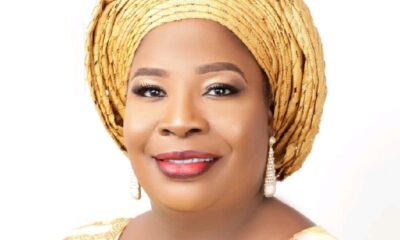Society
Behind Court Order Stalling Emergence Of NSE’s First Female President
has stirred discontent among certain association members

In Nigeria, the judiciary has come under increased scrutiny due to recent conflicting and unexpected rulings, sparking concerns about its role in the country’s socio-political landscape.
The Nigerian Society of Engineers (NSE) elections have become a focal point of this scrutiny, with the abrupt halting of the electoral process by an interlocutory injunction from a Federal Capital Territory High Court in Abuja.
This has ignited debates on the appropriateness of frequent judicial interventions in organizational affairs.
The situation has stirred discontent among certain association members, particularly as the inauguration of the anticipated President, Mrs. Margaret Oguntala, FNSE, slated for January 2024, has been halted by the injunction.
If inaugurated, Mrs. Oguntala would make history as the first female President in the association’s 65-year history.
Beyond raising questions about gender dynamics in Nigeria’s elections, this incident has spotlighted a concerning trend where disgruntled individuals employ legal maneuvers akin to the political class.
Although judicial interference in election matters is constitutionally permissible, the use of injunctions, whether exparte or interlocutory, on election-related issues is regarded as regressive. It creates organizational complexities, leadership challenges, and undue hardships for those involved. Critics argue that individuals face penalties even before the substantive issues in a case undergo thorough court examination.
A retired senior member of the bench expressed bewilderment at the interlocutory injunction, deeming it unusual for a court to disrupt the activities of a voluntary association merely to accommodate certain interests. This situation has also caught the attention of public affairs commentator and Managing Partner of Jiworob Law solicitors, Jimmy W. Robert, who pointed out that in associations, varying interests often come into play, especially during elections. Any member may find reasons to seek court intervention, and courts can be persuaded to grant injunctions pending the resolution of the case.
Currently, all parties involved are expected to maintain the status quo until the substantive issues in the case are determined.
The court has set January 25, 2024, for the hearing of the substantive suit, and all eyes are on it to see how this matter will unfold.



